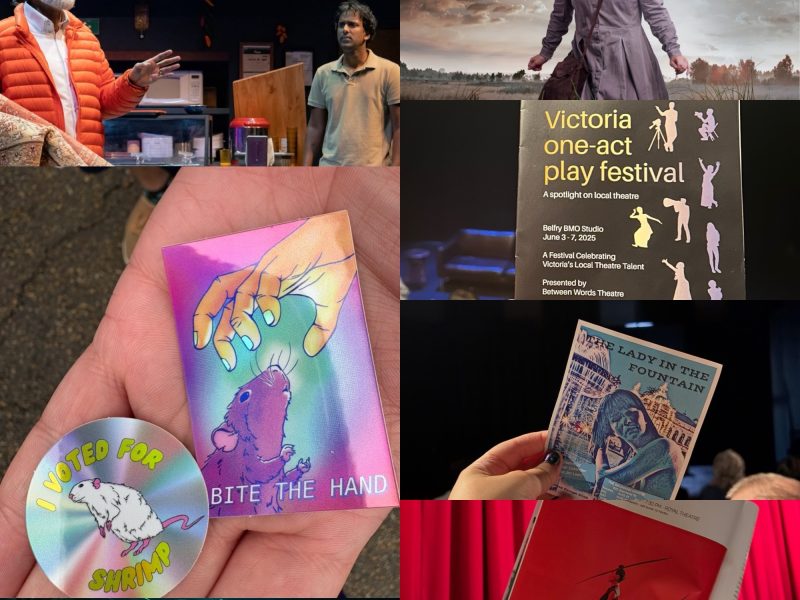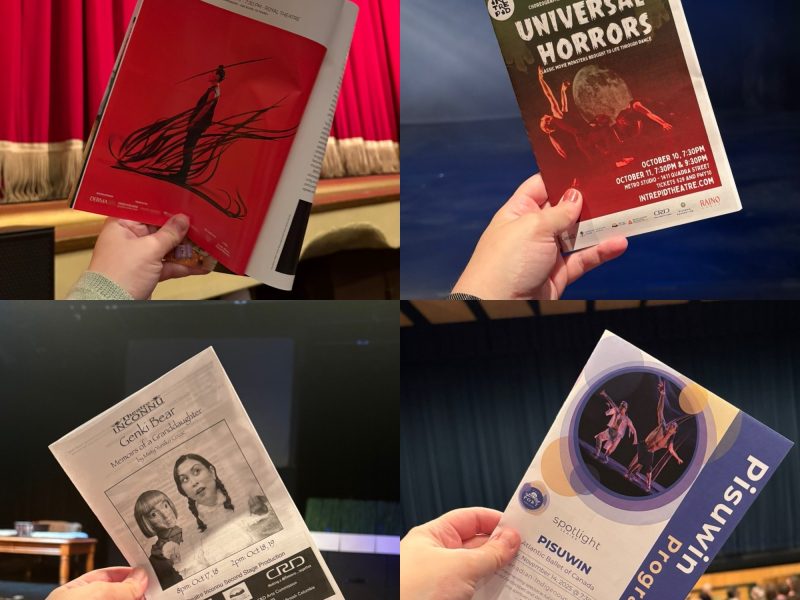One of the many summertime joys that can be found in a number of cities throughout North America is putting together a picnic basket and heading to a nearby park with some friends to take in a production of the bard. Greater Victoria Shakespeare Festival has been offering their take on Shakespeare’s works to Victorians since 1991, and this year’s offering is a classic, with a new twist: a queer retelling of Romeo and Juliet laid against the backdrop of a dystopian maybe-near-future.
I will be upfront that this wasn’t my favourite production of Romeo and Juliet that I have taken in, but I commend the many bold choices that worked extremely well.
The addition of a tryst between Benvolio and Mercutio was extremely effective and added a layer of intrigue that was totally captivating for audiences to revel in, the performances by August Elzinga and SJ Valiquette were exceptional: raucous and playful, and just a little bit sexy at the right time, too.

Tybalt’s performance by Willow Hayes was a fresh addition to the canon of a well-trod and beloved character, and I appreciated the almost-unhinged quality Hayes brought to the part. Tybalt at times seems to almost stalk her foes, and their readiness to leap to violence was excellent (it’s almost a shock to see Hayes’ smiling face coupled with an adorable kitten in the program!)
An oft-overlooked role that I think had such nuance in this performance was Gene Sargent’s Friar Lawrence. The Friar is often played as a wise sage whose perfect plan is brought down by one mistake, but here, Sargent shows the constant flurry of harm reduction the friar attempts, trying his best to mend fences and then save lives, but ultimately is fully unsuccessful at everything. This makes his tragedy so much more real, and not just the fault of one letter that went awry.
The production looked for every possible moment of humour, romance, and joy to add contrast to what is, we all know, a tragic story. Much of the comedy comes from the nurse, joyfully played by Nave Patterson in intentionally fun drag. Patterson’s physical comedy was well set against the darker moments, although I wish there were even a few more moments of sweetness and tenderness between the nurse and Juliet.
Where the production struggled was clarity – it was expressed to me by my friends who didn’t read the summary that the costuming didn’t read as dystopian, but as punk versus a somewhat unkept have’s. With minimal sets and virtually no sound cues, I did agree that it would have been difficult to pinpoint the themes of a stripped-down society in ruins from just seeing the production alone.
Another aspect was the changing of the pronouns of some characters but not others. Even my friends who were well versed with the script were confused on more than one occasion, as they thought the character was referring to someone else entirely. Matching the pronouns to the character (for example, for Tybalt) is a helpful change, but it created confusion when, for example, the character of Romeo’s pronouns were still he/him.
While the cast was all quite strong, there were some issues of miscasting, especially with a lack of age diversity. Some parents looked younger than their children or adult nephews. Finally, as with so many Shakespeare performances, there was sometimes the concern that the actors were getting the words out rather than getting the meaning across. This could interrupt the flow of a scene and did take me out of the moment.

Overall, this cast was quite strong, and the production was an enjoyable evening. While I feel like some of the choices didn’t work as effectively as intended, there is much to commend this show. The queer love story, at the heart of this, was such a strong choice and was clearly never played for titillation or novelty. Looking for ways to tell diverse love stories, even within the “classics” is so important. This offers a new perspective on a story which we think we know, and I commend the love and tenderness which this production gave us these love stories.


